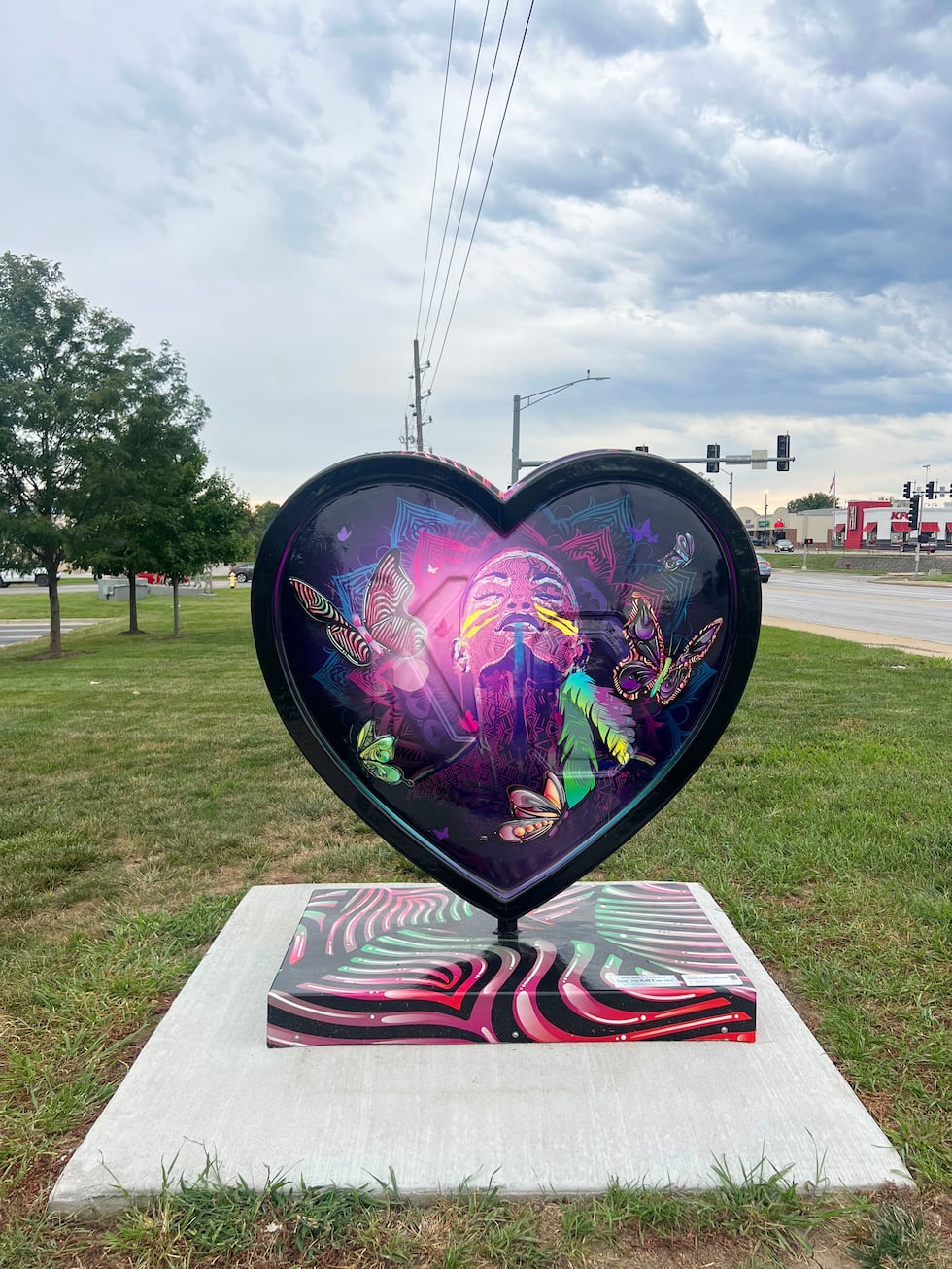Local artist highlighting community during Lupus Awareness Month
KANSAS CITY, Kan. (KCTV) - Lupus is an autoimmune disease that affects over one million people in the United States, 90% of which are women. Symptoms can vary from person to person and the cause of it remains unknown.
With May being Lupus Awareness Month, one local artist wants others diagnosed with the disease to know they aren’t alone. KCTV first met Keisha Jordan when Parade of Hearts unveiled the 2025 hearts last April. She dedicated her heart to the lupus community, which she has been part of for over 20 years.
“I was diagnosed when I was in college,” said Jordan. “It started out with some minor t pain, some fatigue. At the time, I thought it was just the stress of college just weighing on me, but it just kept occurring more and more. My mom came home one day asking why her house smelled like Bengay (pain relief cream), why I was always wrapping my knees and ts. I told her it was because I was in pain all the time. I didn’t understand what was going on.”
They went to her primary care physician and after running tests and being referred to a rheumatologist, she was diagnosed with lupus. She says she was the only person she knew who had it.
“When I was diagnosed it was the early 2000s, so the internet and all the information that was there is nothing like it is now where you can just look it up,” said Jordan. “When I was diagnosed, all I got was a brochure. I was told to ‘read this and you’ll be fine’. That was it. There was no information about groups. Going through lupus was an isolating journey. Trying to figure out what it is, how do I overcome, and how do I sustain a healthy life, especially being diagnosed so young and doing this all by myself.”
She says the journey took a physical, mental, and emotional toll on her. Then one day, a friend told her his mom had ed away from lupus. He introduced her to the Lupus Foundation of America, or LFA. She says it was the first time she knew of someone else impacted by lupus.
“We started doing lupus walks in Chicago for many years until I moved to Kansas City,” said Jordan. “I ended up doing more things within the lupus community. I did a documentary and other outreach programs within the community as well.”
She says while the lupus community in Kansas City is small, she wants others living with the disease in the area to know they aren’t alone.
“There are a lot of people living in silence and they need to be heard and seen,” said Jordan. “I want people to know there is help here in Kansas City. There is a family here of lupus warriors.”

LFA says a lupus group meets at Abundant Life Church in Kansas City, Kansas, on the third Friday of every month from 7-8:30. On Sep. 20, LFA is holding its annual Walk to End Lupus.
“Lupus may sound like one disease to you, but it is literally tens of different diseases that do not even resemble each other,” said Dr. Ghaith Noaiseh, a rheumatologist with The University of Kansas Health System. “The symptoms could range from mild to life-threatening, and it can affect pretty much any part of the body. Arthritis, fatigue, rashes, kidney involvement are some of the common manifestations of lupus.”
Noaiseh stresses just because you have one or more of these symptoms, does not automatically make it lupus. He says the disease is complex and there isn’t just one test to diagnose it.
“I could literally list at least 100 symptoms that could potentially be compatible or suggestive of lupus,” said Noaiseh. “Most patients who have fatigue do not have lupus. Most patients who have arthritis do not have lupus. It depends on the clinical presentation, the progression of symptoms. The complexity of the disease entails how we think about it and how we diagnose it. The clinician will gather as much information, the patient’s history, the symptoms and signs, any abnormal labs, and sometimes even more.”
Noaiseh has conducted research and clinical trials on Sjogren’s Disease and Systemic Lupus erythematosus and is optimistic on where research currently is.
“It’s an exciting time for research in the field of lupus,” said Noaiseh. “2025 will likely bring, I hope, additional FDA approvals. We’re getting better at this. We’re understanding the disease better at the higher level. We’re defining subsets of patients that are more likely to be amenable to treatment. Hope is the best word here. There is a lot of effort and there will be more of that for the years to come.”
Numerous studies are ongoing into the possible causes of lupus, as well as treatment and a potential cure.
Copyright 2025 KCTV. All rights reserved.














